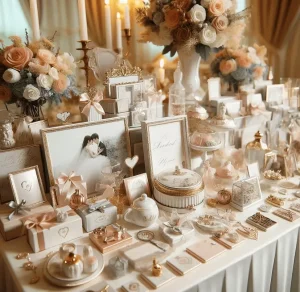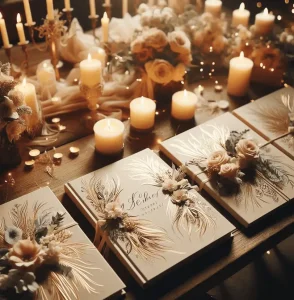Living in Portugal: Portuguese Wedding Traditions

Every country has its own wedding traditions. In ancient times, Portuguese people used to marry simply to build a family. Many old customs have been revived and are now included in modern wedding ceremonies. Many of the customs that were practiced in this European country have evolved over time to symbolize the mutual love of the couple.
Over 99 percent of the Portuguese are Roman Catholic. Therefore, most wedding ceremonies are based on the traditions of the Roman Catholic Church. Increasingly more couples are choosing the romanticism of the more ancient wedding traditions handed down from generation to generation. Wedding celebrations in Portugal usually include a Roman Catholic mass where the priest calls for the bride and groom to exchange rings, or ties the couple’s hands with his stole. When the couple exits the church, family and friends throw flowers and bonbons. In most European countries, relatives of the bride and groom traditionally throw rice over the newlywed couple.
In Portugal, it is customary for neighbors and friends to help with the celebration and with the wedding itself. Held at a restaurant or in a private home, the ceremony is usually small and limited to close family members. Many couples choose to prepare their own food for the wedding party instead of using the services of a catering provider. Family and friends gather to exchange stories about the newlywed couple and enjoy traditional singing and dancing. They also collect money for the bride and groom. Customarily, the money is collected in the bride’s shoe.
As soon as the ceremony ends, the bride and groom parade through the streets where family, friends and even strangers wish them happiness. In the North coast of Portugal, brides wear black dresses as a sign of fidelity to their future husbands. Their appearance is completed by the famous Portuguese Queen earrings (brincos Rainha) and a lot of gold jewelry. This is the dress they will be buried when they die.
In the past, the bride was wearing a white Chinese tunic adorned with colorful jewelry. The groom was wearing a dark top hat, a white shirt, and dark suit. At the end of the ceremony, they were placing their wedding bands on each other’s hands. The tradition of passing the bride’s heel around to all guests to receive money that will help the newlywed couple build their own house is still practiced today. The bride and groom must also choose a padrinho (best man) and a madrinha (maid of honour).





